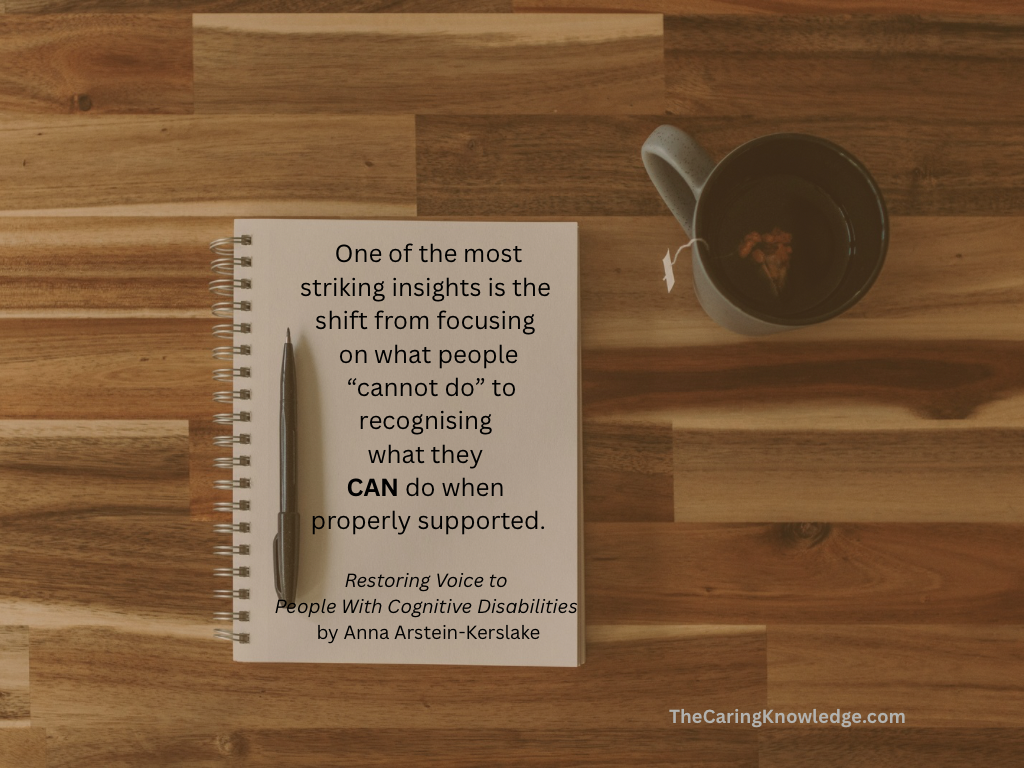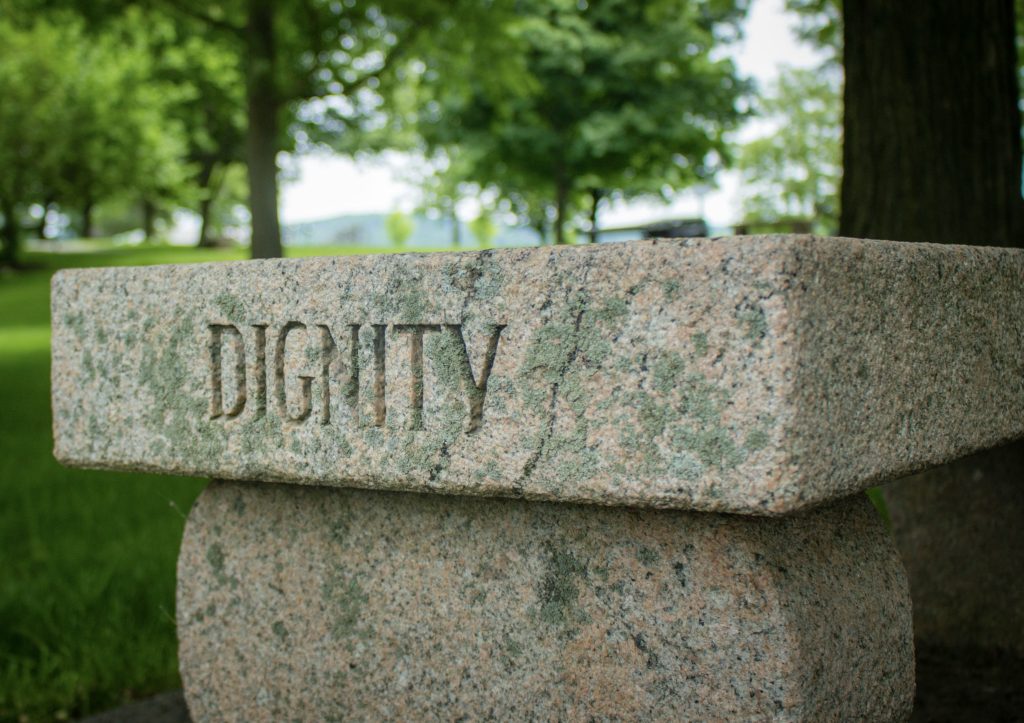
I have been re-reading Anna Arstein-Kerslake’s book, Restoring Voice to People with Cognitive Disabilities. And it has made me reflect on the adults I care for as a live-in carer. Many of them live with cognitive disabilities such as dementia or the after-effects of stroke. Although their situations may not precisely align with the examples in the book, the central principle still applies. We must see each person as a whole individual, not as a diagnosis or condition.




